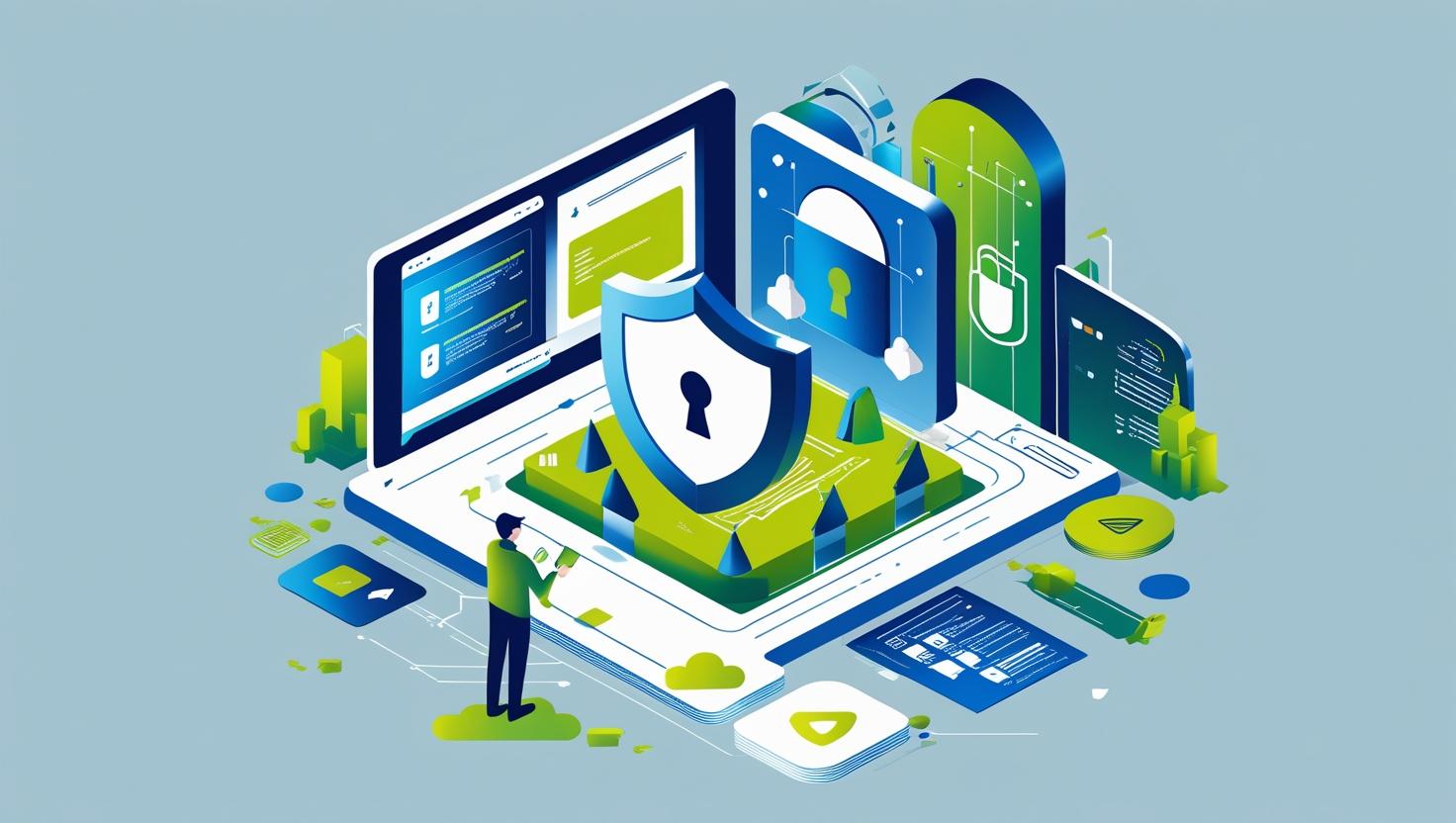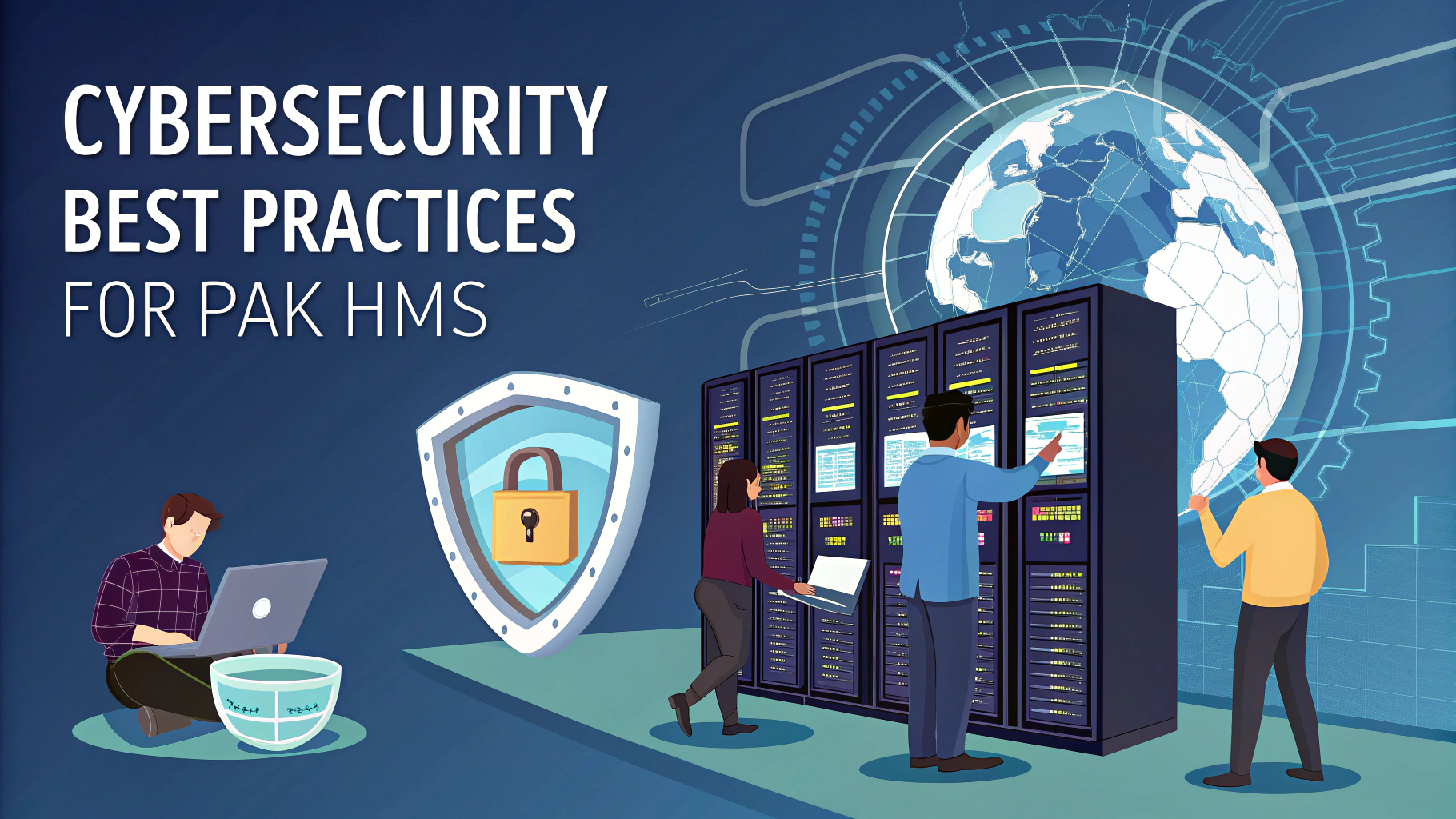Cybersecurity Best Practices for PAK HMS Tech Teams (2025 Edition)
As digital transformation sweeps through the hospitality sector, cybersecurity is now as important as concierge service. Hotel Management Systems (HMS) manage everything from guest bookings and payment processing to internal communications and vendor logistics. For PAK HMS—a leading cloud-based platform serving hotels across Pakistan and beyond—securing these systems is mission-critical.
In 2025, the threats are more sophisticated, the stakes are higher, and the margin for error is slimmer. Tech teams supporting PAK HMS deployments must adopt a proactive, layered approach to cybersecurity that protects both the guest experience and the business reputation.
In this guide, we outline the top cybersecurity threats, key vulnerabilities, and actionable best practices every PAK HMS tech team must implement to safeguard hospitality environments.
⚠️ The Cybersecurity Landscape in 2025
Top Threats Facing Hotel Tech Platforms
- Phishing & Social Engineering Attacks – Targeting front desk staff and admins.
- Ransomware – Locking systems in exchange for payment.
- Credential Stuffing – Exploiting reused passwords across platforms.
- Unsecured APIs – Data leakage from third-party integrations.
- Malicious Mobile Apps – Fake apps mimicking hotel tools.
- Insider Threats – Misuse of privileges by disgruntled or careless employees.
A 2024 Deloitte report found that 63% of hotel data breaches started through compromised credentials or insider error.
🧱 Cybersecurity Pillars for PAK HMS Deployments
To protect PAK HMS instances and connected infrastructure, tech teams should design security around these core pillars:
| Pillar | Focus |
|---|---|
| Prevention | Hardening systems and minimizing vulnerabilities |
| Detection | Monitoring for unusual behavior or breaches |
| Response | Defined steps for isolating and recovering |
| Education | Training staff on cyber hygiene and threats |
Now, let’s break this down into best practices your tech team can adopt.
🔐 1. Harden Access Controls & Authentication
✅ Multi-Factor Authentication (MFA)
Enforce MFA for all PAK HMS admin accounts, especially:
- Front desk dashboards
- Finance modules
- Super admin users
Use app-based authenticators (e.g., Microsoft Authenticator or Google Authenticator) rather than SMS.
✅ Role-Based Access Control (RBAC)
- Limit data visibility based on job role
- Use “least privilege” principles (users only get access to what they need)
- Regularly audit permissions every quarter
✅ Disable Shared Credentials
Each employee must have individual, traceable logins. Shared credentials = no accountability.
🖥 2. Patch and Update Consistently
✅ Apply Security Patches Promptly
- PAK HMS core updates are automated, but tech teams must also patch hotel Wi-Fi routers, POS devices, and firewall appliances.
- Set up alerts for patch availability and version mismatches.
✅ Avoid Unsupported Software
Legacy browsers or out-of-date operating systems are prime targets for exploitation. Migrate outdated systems.
🕵️ 3. Monitor Logs and Anomalies
Use centralized logging and monitoring tools to:
- Detect unusual login locations or times
- Flag mass export/downloads of guest data
- Monitor API usage volumes or anomalies
- Catch excessive failed login attempts
If possible, integrate with SIEM platforms like Splunk, Wazuh, or LogRhythm.
🔄 4. Secure APIs and Integrations
PAK HMS integrates with:
- Payment gateways
- Channel managers
- CRMs and marketing platforms
- Smart devices (IoT)
✅ Best Practices for API Security
- Use OAuth 2.0 for authentication
- Restrict API access to specific IPs
- Implement rate limiting to prevent abuse
- Audit third-party data flows quarterly
- Revoke access to unused integrations
Never expose tokens or secrets in source code or config files.
🧑💼 5. Train Staff on Cyber Hygiene
Even with perfect tech, humans are the weakest link.
Deliver Quarterly Training On:
- Recognizing phishing emails and suspicious links
- Verifying guest identities before data disclosure
- Using strong, unique passwords
- Reporting lost/stolen devices immediately
- Following incident response playbooks
Use Tools Like:
- Simulated phishing campaigns (e.g., KnowBe4, Cofense)
- In-house LMS quizzes embedded into PAK HMS LMS

🔍 6. Conduct Penetration Testing & Vulnerability Scans
Internal Tests
- Scan web frontends, mobile apps, and network infrastructure using tools like Nessus, OpenVAS, or Burp Suite
External Audits
- Hire certified ethical hackers annually to perform black-box and white-box testing on your PAK HMS instance
Continuous Scanning
- Automate scans post every update/deployment via CI/CD pipelines
🔑 7. Encrypt Everything, Everywhere
Data In Transit
- Ensure TLS 1.3 is enabled for all HTTP traffic
- Use secure email gateways (DKIM, SPF, DMARC)
Data At Rest
- Use AES-256 encryption on guest databases and backups
- Secure mobile device storage with file-level encryption
- Do not store raw card data on local systems
🔄 8. Backup & Recovery Planning
- Daily automated backups stored off-site or in geo-redundant cloud regions
- Immutable backups that cannot be tampered with by ransomware
- Monthly restoration tests to verify recovery procedures
- Maintain recovery time objective (RTO) and recovery point objective (RPO) policies
🧩 9. Device and Endpoint Protection
Mobile Devices
- Require passcodes and biometrics
- Enable remote wipe for lost phones/tablets
- Use MDM (Mobile Device Management) platforms for control
Desktops & Kiosks
- Deploy antivirus and endpoint detection (EDR) software
- Lock screens after inactivity
- Restrict USB usage (common vector for malware)
🛡 10. Incident Response Planning
You need a clear plan before a breach happens.
IR Playbook Should Include:
- Incident classification levels (Critical, High, Medium)
- First responder roles and contact trees
- Data breach reporting timelines (e.g., within 72 hrs for GDPR)
- Forensics process (logs, backups, data snapshots)
- Communication templates (to guests, authorities, media)
Conduct simulation drills twice a year.
📊 Sample Weekly Cybersecurity Checklist for PAK HMS Tech Teams
| Task | Frequency |
|---|---|
| Audit user access & RBAC | Weekly |
| Check pending patches | Weekly |
| Monitor logs for anomalies | Daily |
| Verify backups completed | Daily |
| Staff phishing test report | Monthly |
| Scan third-party API logs | Weekly |
| Change shared keys/tokens | Monthly |
🏨 Case Study: Securing a 5-Hotel Group Using PAK HMS
Group: StarLight Inns – mid-sized hospitality chain operating in Lahore, Islamabad, and Karachi
Challenges
- Previously used shared Excel logins
- Unmonitored third-party CRM leaked data
- Weak guest Wi-Fi segmentation
PAK HMS Tech Team Actions
- Implemented RBAC & MFA
- Introduced weekly patching policy
- Audited APIs and removed two risky plugins
- Conducted internal phishing campaign and trained 70+ staff
- Upgraded POS systems to PCI-DSS compliance
Outcome (Within 6 Months)
- Reduced unauthorized access attempts by 90%
- Passed OTA cybersecurity compliance audit
- No breach incidents reported
- Earned a local hotel cybersecurity excellence award
🧭 Cybersecurity Trends to Watch (2025–2026)
- AI-Augmented Threat Detection
PAK HMS will incorporate anomaly detection using ML to flag high-risk patterns. - Zero Trust Architecture
“Trust no one, verify everything” approach for internal comms and vendor access. - Biometric Authentication
Expanding beyond fingerprint and face ID to behavior-based authentication. - Blockchain Audit Trails
Immutable logs of guest data access, payment flows, and service records. - Quantum-Resistant Encryption
Preparing for next-gen threats with post-quantum crypto algorithms.
✅ Final Checklist: Are You Cyber Ready?
- All accounts have MFA enabled
- Staff trained on phishing and device safety
- Backups run and tested regularly
- No shared passwords or unpatched software
- PAK HMS logs monitored weekly
- Integrations vetted and minimized
- Security policies reviewed quarterly
- IR plan tested this year
- Kiosks and endpoints secured
🔚 Conclusion: Cybersecurity is Guest Security
In today’s digital-first hotel landscape, a data breach doesn’t just affect servers—it impacts trust, loyalty, and your brand’s integrity.
With PAK HMS, you already have a secure foundation. But it’s up to your tech team to build and maintain a vigilant cybersecurity posture.
By following these best practices, your hotel isn’t just protected—it becomes a model for safe and smart hospitality in 2025 and beyond.



Leave A Comment